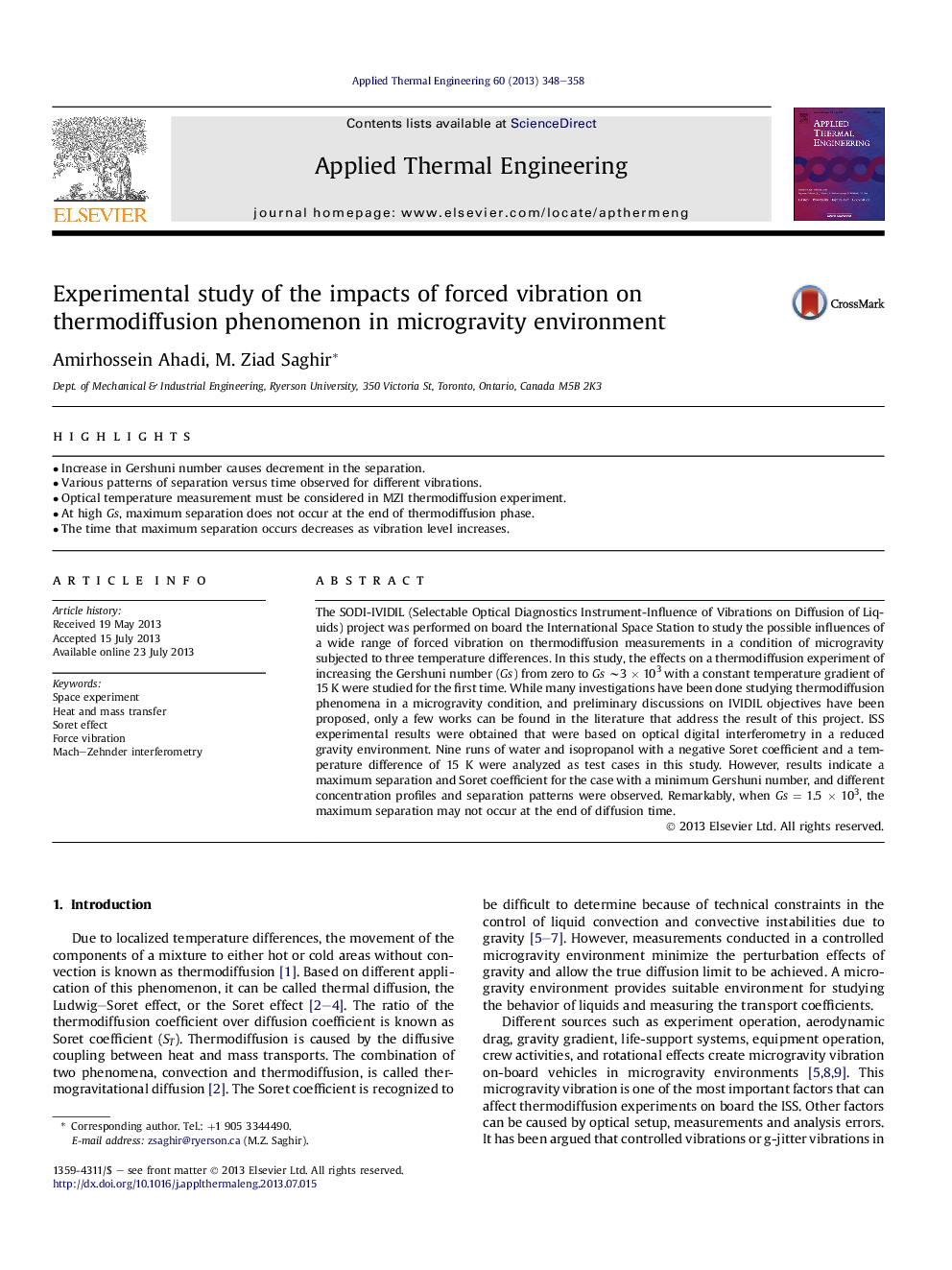| Article ID | Journal | Published Year | Pages | File Type |
|---|---|---|---|---|
| 7049816 | Applied Thermal Engineering | 2013 | 11 Pages |
Abstract
The SODI-IVIDIL (Selectable Optical Diagnostics Instrument-Influence of Vibrations on Diffusion of Liquids) project was performed on board the International Space Station to study the possible influences of a wide range of forced vibration on thermodiffusion measurements in a condition of microgravity subjected to three temperature differences. In this study, the effects on a thermodiffusion experiment of increasing the Gershuni number (Gs) from zero to Gs â¼3 Ã 103 with a constant temperature gradient of 15 K were studied for the first time. While many investigations have been done studying thermodiffusion phenomena in a microgravity condition, and preliminary discussions on IVIDIL objectives have been proposed, only a few works can be found in the literature that address the result of this project. ISS experimental results were obtained that were based on optical digital interferometry in a reduced gravity environment. Nine runs of water and isopropanol with a negative Soret coefficient and a temperature difference of 15 K were analyzed as test cases in this study. However, results indicate a maximum separation and Soret coefficient for the case with a minimum Gershuni number, and different concentration profiles and separation patterns were observed. Remarkably, when Gs = 1.5 Ã 103, the maximum separation may not occur at the end of diffusion time.
Related Topics
Physical Sciences and Engineering
Chemical Engineering
Fluid Flow and Transfer Processes
Authors
Amirhossein Ahadi, M. Ziad Saghir,
